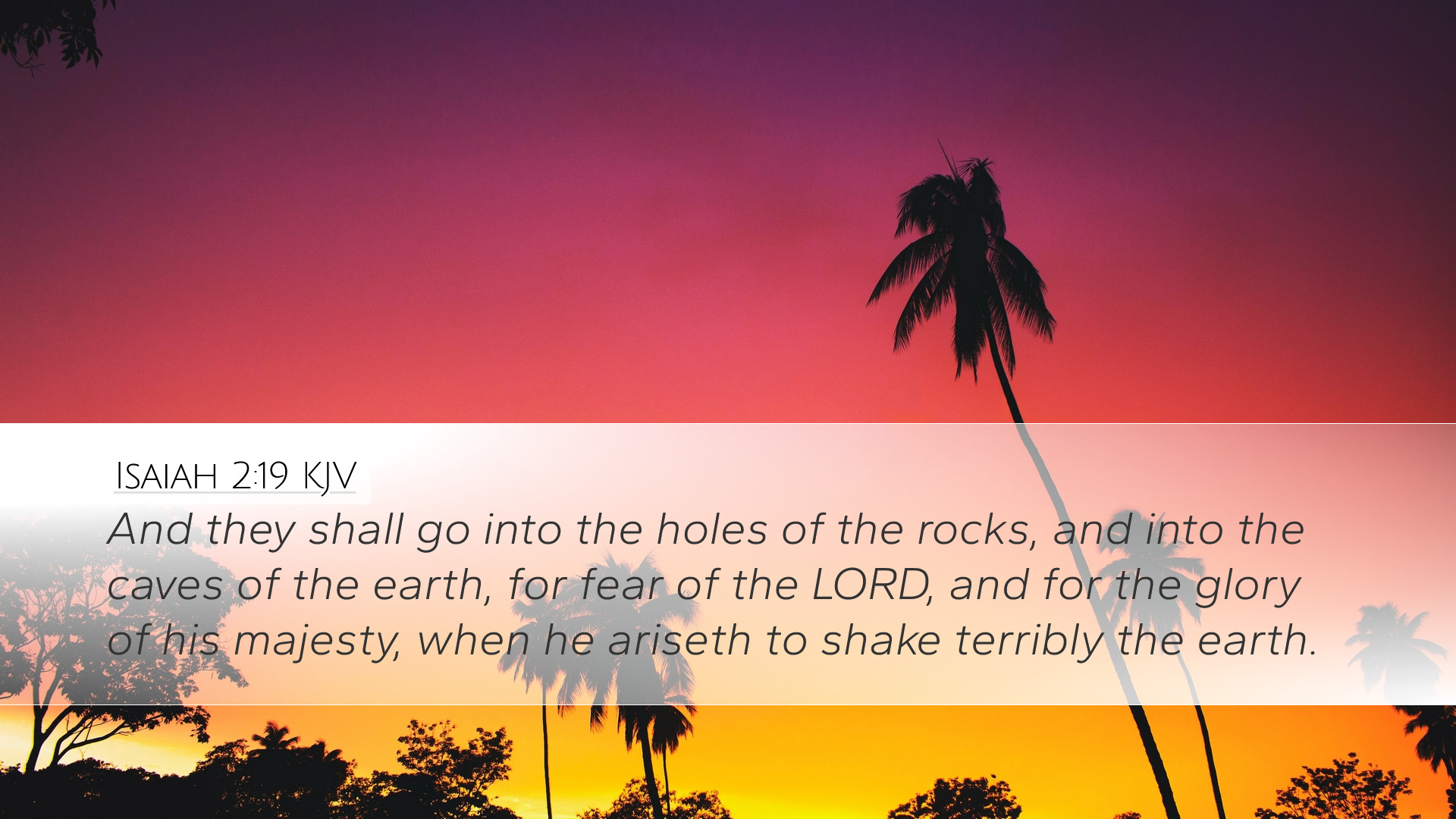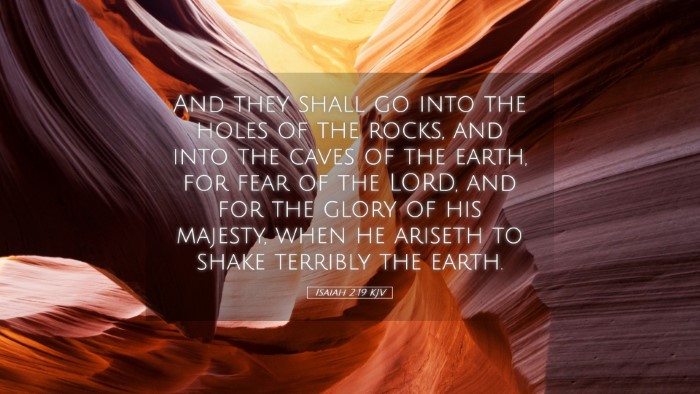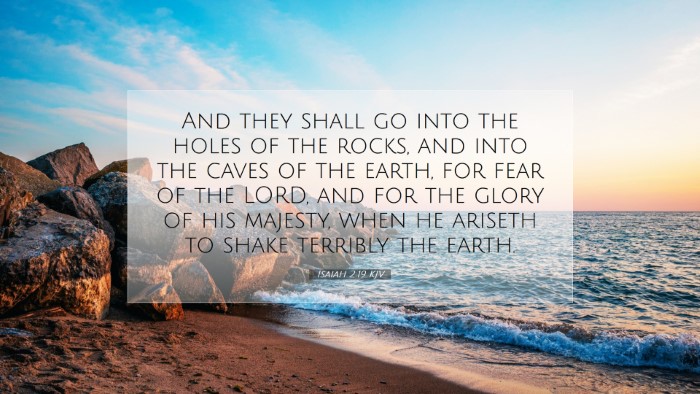Commentary on Isaiah 2:19
Isaiah 2:19 states:
"And they shall go into the holes of the rocks, and into the caves of the earth, for fear of the LORD, and for the glory of his majesty, when he ariseth to shake terribly the earth."
Contextual Overview
The context of Isaiah 2 is primarily prophetic, emphasizing the vision of the future glory of the Lord and the resulting judgment upon the pride and idolatry of the people. Chapters 1 through 5 of Isaiah contain initial prophecies concerning the judgments that were impending upon Judah and Jerusalem due to their transgressions against God.
Theological Insights
- Divine Judgement: The phrase "fear of the LORD" speaks to an overwhelming recognition of God's sovereignty. This fear leads people to seek refuge in hidden and dark places, illustrating the profound impact of divine majesty exerted in judgment. Matthew Henry emphasizes that such fear comes from a realization of one’s own insignificance in the presence of God’s holiness.
- Recognition of God’s Glory: The "glory of his majesty" reflects God's ultimate power. Albert Barnes notes that when God reveals His might, those who defied Him will recognize their folly and seek to hide from His presence, reminiscent of Adam and Eve's attempt to hide after their sin (Genesis 3:8-10).
- Human Vulnerability: Adam Clarke observes that the people will be shown their complete inability to withstand the judgment of God. Their attempt to flee to rocks and caves signifies human vulnerability and the futility of trying to escape divine retribution.
Symbolic Interpretations
- Hiding Places: The "holes of the rocks" and "caves of the earth" symbolize a human instinct to hide from danger and judgment. Clarke articulates that these places represent not only physical hiding but also the spiritual state of men trying to avoid accountability before God.
- Crisis of Faith: The act of fleeing can also represent a crisis of faith. In the face of God's immutable truth and justice, even the seemingly strong and proud will be reduced to terror, as they realize their need of mercy. This scenario intricately weaves the themes of fear, faith, and grace.
Applications for Spiritual Growth
- Awareness of God’s Majesty: This verse serves as a reminder to maintain an awareness of God's immense power and holiness. Pastors and theologians can use this as an exhortation to emphasize reverence in worship and a lifestyle that acknowledges God's sovereignty in every aspect of life.
- Contemplation on Judgment: Given the realities of divine judgment depicted in this verse, Christians are encouraged to reflect on personal and communal accountability. This awareness encourages a deeper relationship with God, built on repentance and humility.
- Evangelistic Urgency: The terror described illuminates the urgency of sharing the Gospel, reminding believers of their mission to seek the lost. Understanding the gravity of God's judgment compels believers to reach out to those who are unaware of their impending peril without Christ.
Conclusion
Isaiah 2:19 provides profound insights into the nature of God as both majestic and just. The verse encapsulates the fear that arises from the recognition of God’s glory, leading to a sense of vulnerability among humanity. Through the reflections of Matthew Henry, Albert Barnes, and Adam Clarke, we understand the complexities of divine judgment and the human condition. This understanding not only serves to inform our theological perspectives but also encourages spiritual applications that can lead to growth, accountability, and mission-mindedness within the body of Christ.


